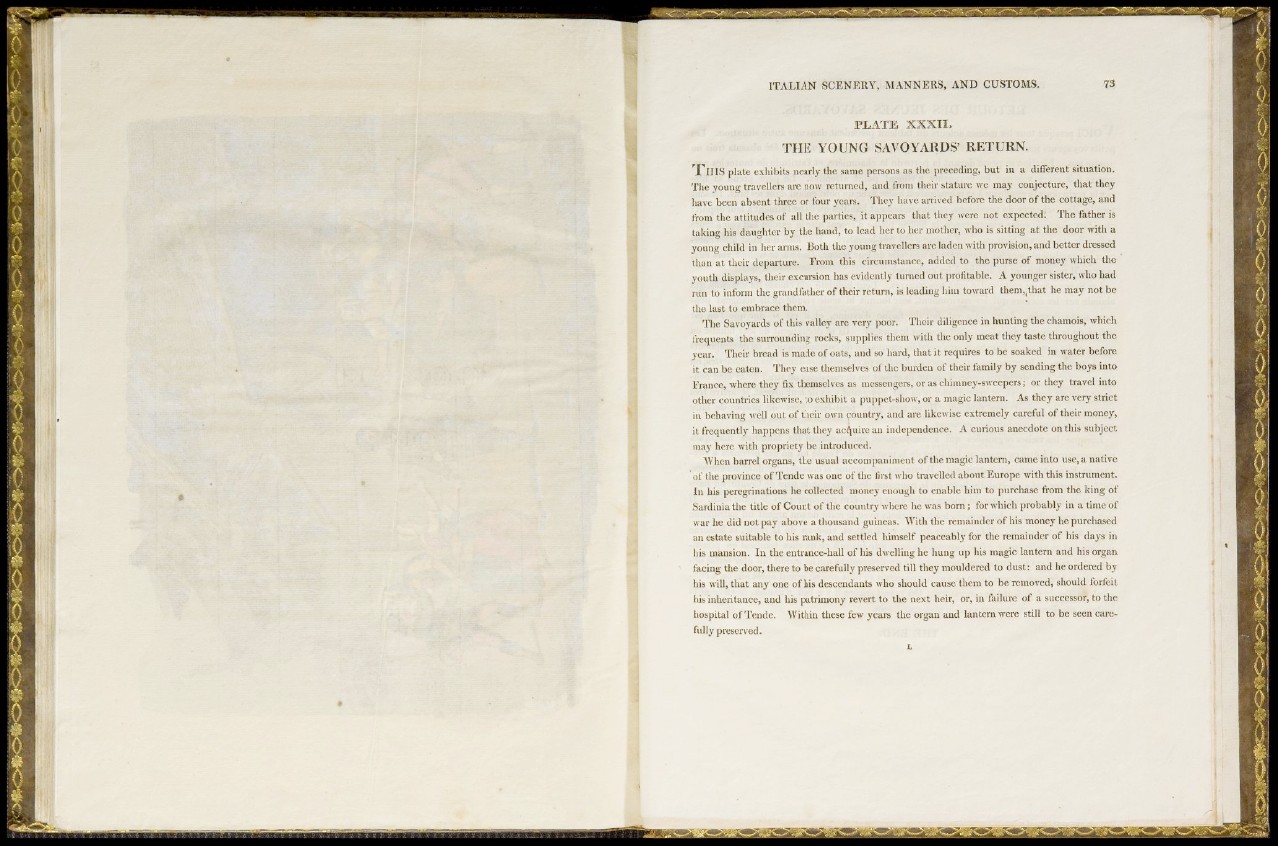
ITALIAN SCENERY, MANNERS, AND CUSTOMS. 73
PILATE X X X I I .
THE YOUNG SAVOYARDS' RETURN.
T h i s plate exhibits nearly the same persons as the preceding, but in a difierent situation.
The young travellers are now returned, and from their stature we may conjecture, that they
have been absent three or four years. Tliey have arrived before the door of the cottage, and
from the attitudes of all the parties, it appears that they were not expected: The father is
taking his daughter by the hand, to lead her to her mother, who is sitting at the door with a
young child in her arms. Both the young travellers are laden with provision, and better dressed
than at their departure. From this circumstancc, added to the purse of money which the
youth displays, their excursion has evidently turned out profitable. A younger sister, who had
run to inform the grandfather of their return, is leading hiui toward them,,that he may not be
the last to embrace them.
The Savoyards of this valley are very poor. Their diligence in hunting the chamois, which
frequents the surrounding rocks, supplies them with the only meat they taste throughout the
year. Their bread is made of oats, and so hard, that it requires to be soaked in water before
it can be eaten. They ease themselves of the burden of their family by sending the boys into
France, where they fix themselves as messengers, or as chimney-sweepers; or they travel into
other countries likewise, to exhibit a puppet-show, or a magic lantern. As they are very strict
in behaving well out of their own country, and are likewise extremely careful of their money,
it frequently happens that they acquire an independence. A curious anecdote on this subject
may here with propriety be introduced.
"When barrel organs, the usual accompaniment of the magic lantern, came into use, a native
of the province of Tende was one of the iii-st who travelled about Europe with this instrument.
In his peregrinations he collected money enough to enable him to purchase from the king of
Sardinia the title of Count of the country where he was born; for which probably in a time of
war he did not pay above a thousand guineas. With the remainder of his money he purchased
an estate suitable to his rank, and settled himself peaceably for the remainder of his days in
his mansion. In the entrance-hall of his dwelling he hung up his magic lantern and his organ
facing the door, there to be carefully preserved till they mouldered to dust: and he ordered by
his will, that any one of his descendants who should cause them to be removed, should forfeit
his inheritance, and his patrimony revert to the next heir, or, in failure of a successor, to the
hospital of Tende. Within these few years the organ and lantern were still to be seen carefully
preserved.